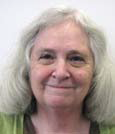Many beginning family historians focus on their direct ancestors: parents, grandparents, etc. While this is a good beginning, it’s equally important to research collateral relatives. Collateral relatives are all those relatives that you’re not directly descended from, such as cousins, aunts, and uncles. Some genealogists complain that they’re really not that interested in great aunts and distant cousins; after all, these are not “your” line.
However, as more seasoned genealogists are aware, you never know what you find until you search for those collaterals. Your great grandmother may not have kept a diary, but perhaps her younger sister did; maybe your great grandfather’s naturalization record has no information about his hometown in Ireland, but his older brothers does. A good plan is to try to find every record for collateral relatives that you find for direct ones. Some types of records to search for might include naturalization records, obituaries, birth, and death records, census records and so on.
The Internet has made it easier to access these various records and find descendants of collateral relatives. Message Boards on Ancestry.com, Rootsweb, and Genforum allow you to post queries about your ancestors. Over the years, I’ve found numerous “genealogy cousins” who have supplied pictures, stories, and letters about my ancestral families. Even in the cases where these distant cousins had no new information, just corresponding with them and looking over my own research again helped me find new clues.
Can chasing collaterals solve every genealogical puzzle? Probably not, but it’s surprising how many brick walls can be breached by researching all those people who aren’t really “yours.”
~ Carol Stetser is a researcher, instructor, library volunteer, and speaker for Larimer County Genealogical Society. Please visit their website at www.lcgsco.org or Facebook page to learn more about their many society events and databases.

